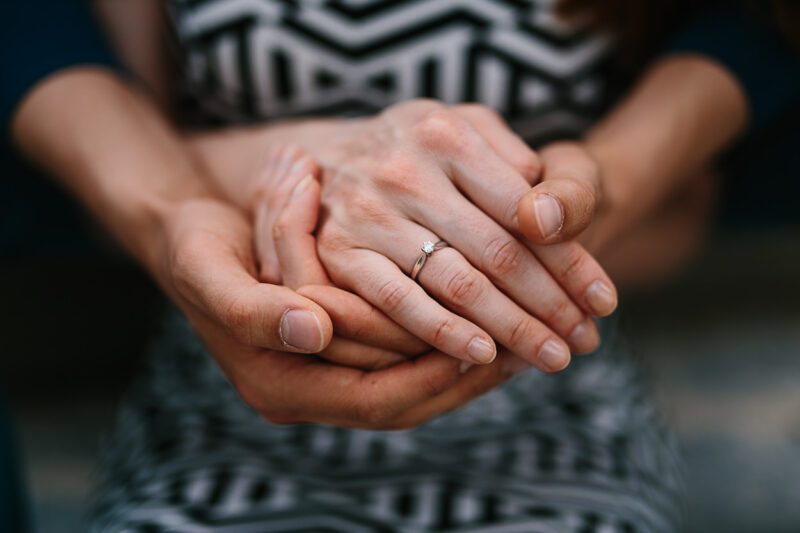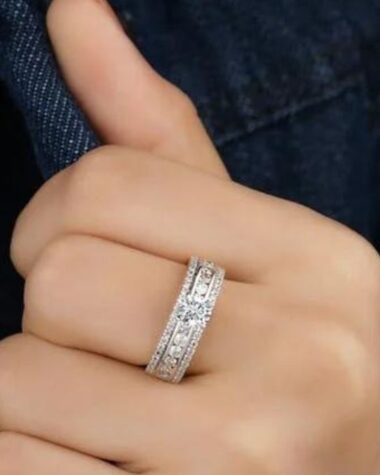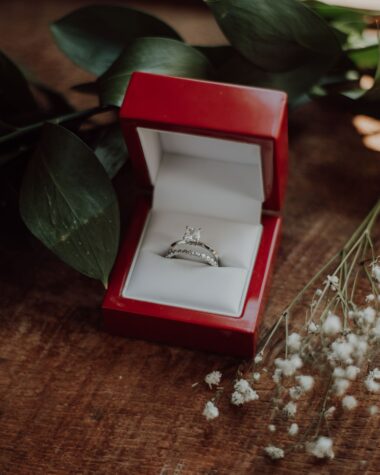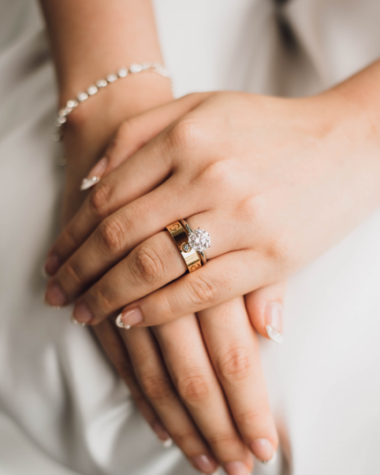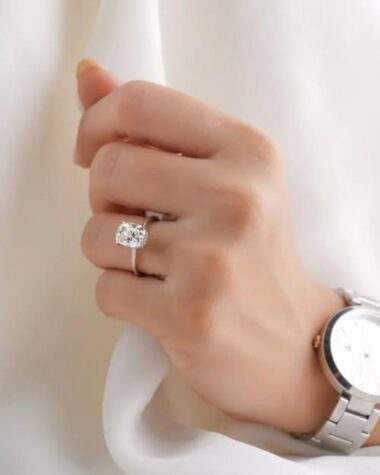When you are searching for the perfect diamond engagement ring for your proposal, there are a few things to keep in mind. Of course you want to invest in a beautiful timeless ring that will last for the rest of your lives. To guarantee this, you will have to pay attention to a few important aspects concerning diamond jewellery and their sellers. In this article we explain what you should know and be aware of before buying an engagement ring.
Higher prices for lesser quality
Not every luxury brand is honest about their price-quality ratio. Often they invest in things like marketing strategies, big fancy retail stores, high stock volumes and so much more. To compensate for their spendings they charge their customers more while they lose focus on the importance of the quality and pricings of their products. A brand should only charge their clients for the aspects that are reflected in the final products. So don’t get tempted by well-marketed offers that will cost you more money for (in most cases) also lesser quality.
Transparent communication and certification
Every brand should always be very transparent and open about their product and prices in their communication. It still happens that some brands are being dishonest about the products they offer and their quality. To prevent this, there are a few different things you have to pay attention to.
The first one is in-house certification or certificates from less reputable laboratories. With in-house certification brands grade the diamonds themselves and deliver only own diamond certificates. A genuine diamond certificate is the identification document of a diamond which proves their unique characteristics including the 4C’s (clarity, cut, colour and carat weight) and their laser engraving. When a seller evaluates the diamonds themselves instead of a renowned and independent laboratory like GIA, HRD or IGI, they could be subjective and over evaluate their diamonds to make more profit. This can also happen when a brand relies on less reputable labs. There is a high risk that you are buying a certain quality diamond (e.g. G VS2) when in reality you will be buying a diamond of lesser quality (e.g. H SI1 or even lower). This is a dishonest way of evaluating diamonds and something to keep an eye open for. Always rely on certificates from internationally renowned labs, like GIA, IGI or HRD, where you are a 100% sure of their objectiveness, transparency, independency, and accuracy.
Another way that brands can deceive you is by not giving the exact quality of the diamonds, but describing them in a vague and unspecific way. In the diamond world there is a worldwide recognized scale of quality. By example, a dishonest seller will give you a certain colour range where your diamond belongs in: e.g. E-F colour. And while you’ll pay for the highest quality diamond in that range (the E colour), you will get the bottom selection which is F colour in this case. This way, you pay way more than your diamond is worth. Make sure you are well informed and pay the right price for the right quality. Another way of non-transparent communication is not giving the client the full information about the quality of the stone and so hiding inferior specifications which makes the diamond less expensive. For example, you might have an “IF” clarity, but a non-communicated “good” cut grade, which significantly diminishes the value of that specific gemstone. It is therefore important that you as a client are fully informed to make a correct price comparison. It is also frequently seen that older grading systems are still used to communicate the diamond quality towards the client. Those grading systems are hardly used today and less accurate than the current official grading system using letter codes. For example using the terms ‘Wesselton’ or ‘River’ to define the colour of your selected diamond. With these terms the client is still not sure about which quality will be delivered as there is no globally recognized corresponding quality with the current grading system. This way the client is less informed about the diamonds they are buying.
Conclusion
When you are on a quest to find the perfect diamond engagement ring, be sure you are well informed about the possible dangers and be able to see through the deceiving offers:
- Only settle for 100% transparent communication between the certificates, the seller and you.
- Keep an eye out for in-house and subjective certificates that will make the diamonds more expensive than necessary.
- Trust renowned and independent labs like GIA, HRD and IGI.
- Do your research before heading to a store or buying an engagement ring online, so you are confident in finding the right price-quality ratio diamond for the love of your life.
